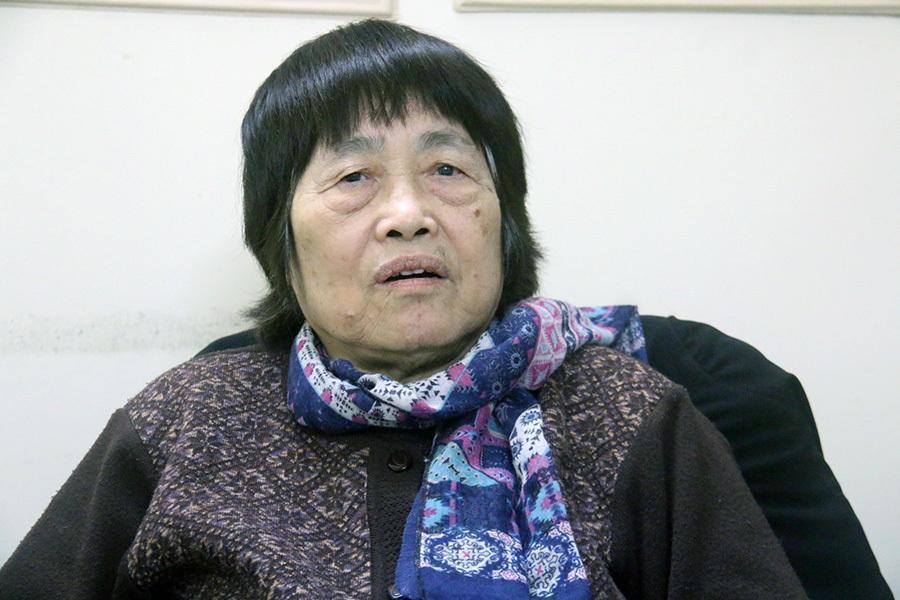Hue heard vulgar insults from her husband whenever she talked about the issue of money.
For more than 20 years of living together, Quang has given money to his wife for family spending only when she asks for it.
Each year, Quang gave only a small amount of money to his wife a few times. To get the money, Hue had to sweetly entreat him.
Hue, a resourceful woman, took care of the whole family by herself. But she could not bear the economic burden alone when her husband had a stable job, with high income. So she tried to sit under a stream of abuse to ask for her husband’s money. Quang said that he needed money to re-invest in his business.

Around 47% of Vietnamese women have suffered from emotional violence from their husbands/partners in their lifetime. Photo: UNFPA Vietnam
Khanh Van, a young mother in her twenties who has just given birth to her first son, faces another type of violence: silence from her husband.
Van is pretty and has a stable job. Tien is young but has a firm position in his company. The young couple's life was quite peaceful until Van got pregnant.
Van said the only disturbance since she was pregnant is that the couple did not sleep together often. For this reason, the gap between them grew. The distance grew so much that Tien had no need to talk to Van, even a single sentence.
For many days, Van waited for her husband to come home to have dinner together, but most of the time, he came home very late. Responding to Van, Tien said: "Already eaten!"
Despite Van’s effort to get closer to her husband, Tien pushed her away. During Van's pregnancy, Tien was like a shadow at home. Van craved her husband's voice, even grumpy voice. Tien just kept silent, and he did not insult or beat her.
Even after Van gave birth, Tien did not once talk to his wife. He did not care for his son. Van heard from her friends that Tien had a mistress.
She went to see a psychiatrist because of severe postpartum depression.
Dr. La Thi Buoi from the Center for Research and Application of Psychological-Educational Sciences still remembers Van's first visit to her room.
Seeing the pretty young girl wearing an odd looking blouse, she asked: "Whose blouse are you wearing?" Van replied: "I am wearing my great-grandmother's blouse."
"It is a form of emotional violence, the consequence of which is that the victim no longer cares about his or her own worth," Dr. Buoi, who has decades of experience, said.
47% of Vietnamese women experience emotional abuse from partners
The proportion of Vietnamese women who experienced emotional abuse by their husbands or partners during their lifetime and in the last 12 months up to the time of a survey conducted in early 2019, distributed by region. Data: Vietnam General Statistics Office
A national survey on abuse against women (2019) conducted by the General Statistics Office of nearly 6,000 women aged 15 to 64 found that most abuse was caused by husbands or partners or someone the women knew. Most cases are not reported to the authorities.
Survey participants said that emotional abuse affected them more than physical or sexual abuse.

Dr. La Thi Buoi from the Center for Research and Application of Psychological-Educational Sciences. Photo: Nguyen Thao
In the survey, emotional abuse included insulting or making a woman feel bad about herself, belittling or insulting them in front of others, and frightening or intentionally threatening a woman and/or making verbal threats (threatening the women or their relatives).
Nearly half (47%) of Vietnamese women have experienced emotional abuse from their husbands or partners in their lifetime. Almost 1 out of 5 women (19.3%) experienced emotional abuse in the last 12 months before the survey was conducted. Like other forms of abuse, emotional abuse is slightly higher in rural than in urban areas.
The proportion of women who experienced emotional abuse was relatively even among the age groups from 25 to 64 - ranging from 44% to 49.5% in their lifetime, and from 14.4% to 26.2% in the last 12 months.
The rate of women with a university or higher degree who experienced emotional abuse was 39.8%. It was 54.2% for women who completed lower secondary school - the highest level in the group.
Photo: The proportion of Vietnamese women experiencing emotional abuse from their husbands or partners during their lifetime and in the last 12 months before the survey (conducted in early 2019), based on educational attainment. Data: Vietnam General Statistics Office
The most common act of emotional abuse against women was to intimidate or frighten the victim – accounting for 38.7%, followed by insulting with 25%.
As many as 25% of women who experienced emotional abuse in various forms reported that they had been abused many times. Nearly 70% reported that they had experienced emotional abuse several times.
* Character names and some details have been changed to protect the victims’ identity.
The stories of Hue and Khanh Van are not exceptional in Vietnamese families. Many wives have to live with obscene words from their husbands or endure terrifying silence from their men. Many of them do not realize that it is a kind of emotional abuse, which is more dangerous than sexual abuse.
Dang Duong
To be continued…

Improved legal framework and public awareness - key to curb domestic violence
Vice chairwoman of the National Assembly’s Committee for Social Affairs Le Thi Nguyet talks about the need to further improve the legal framework on domestic violence prevention and control to better facilitate law enforcement.

Project aims to prevent violence against women and girls
T, a woman suffering from domestic violence in the coastal city of Da Nang, has a simple dream.